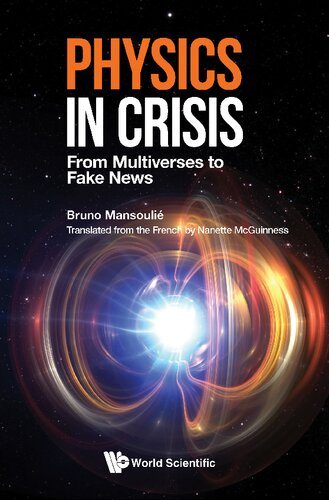

Most ebook files are in PDF format, so you can easily read them using various software such as Foxit Reader or directly on the Google Chrome browser.
Some ebook files are released by publishers in other formats such as .awz, .mobi, .epub, .fb2, etc. You may need to install specific software to read these formats on mobile/PC, such as Calibre.
Please read the tutorial at this link: https://ebookbell.com/faq
We offer FREE conversion to the popular formats you request; however, this may take some time. Therefore, right after payment, please email us, and we will try to provide the service as quickly as possible.
For some exceptional file formats or broken links (if any), please refrain from opening any disputes. Instead, email us first, and we will try to assist within a maximum of 6 hours.
EbookBell Team

4.4
32 reviewsToday's physics has led to incredible advances in the technology we use in daily life - from cell phones and GPS systems to PET scans and more. Current theories in physics have been amazingly effective in practical terms. Yet all is far from well: the two foundational concepts in physics - Quantum Theory and General Relativity - are incompatible with each other, and observations of the universe show that our theories are incomplete - at best.
While physicists have tried to paper over this impasse by inventing dark matter and dark energy, they remain unobserved mysteries. Adding fuel to the fire of current crises, artificial intelligence threatens to replace our most cherished theories and procedures with arcane algorithms. Worse yet perhaps, the public understands physics poorly, either taking it for granted or fearing and rejecting it completely.
Physicists dream of a new universal theory that will completely change how we see our world, much as Einstein did with relativity and Newton with gravity. Likewise, society loves the romantic notion of a single genius heroically creating a massive paradigm shift. Still, is this scenario likely today? Perhaps the next steps in physics will be incremental rather than gigantic.
In Physics in Crisis, Bruno Mansoulié uses simple language, insightful examples, and his personal experience as a working physicist to address these fundamental questions and reflect on how today's crises in physics might be solved.